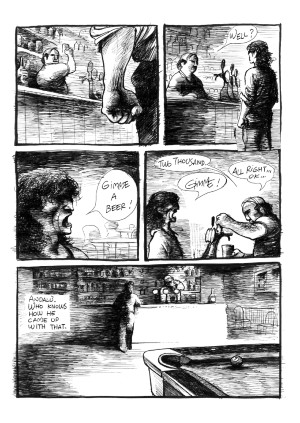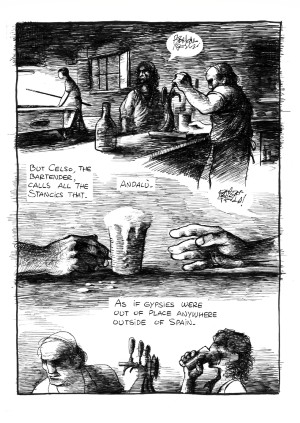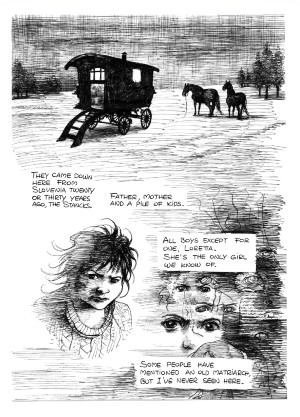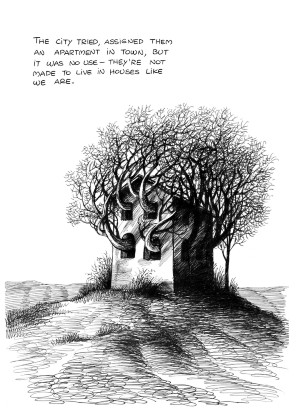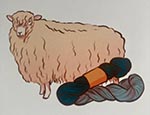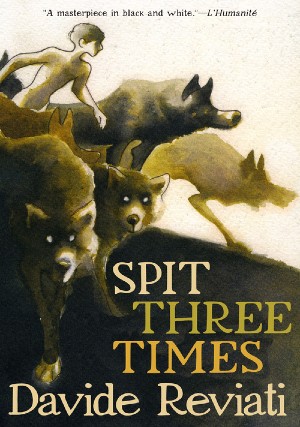 Set in a remote rural Italian village, Davide Reviati’s melancholy and haunting coming-of-age story Spit Three Times is a project several years in the making. Translated by Jamie Richards, and published by Seven Stories for the English-speaking market this year, it’s a book that received much official acclaim on original publication, including being part of the Sélection Officielle at Angoulême in 2018.
Set in a remote rural Italian village, Davide Reviati’s melancholy and haunting coming-of-age story Spit Three Times is a project several years in the making. Translated by Jamie Richards, and published by Seven Stories for the English-speaking market this year, it’s a book that received much official acclaim on original publication, including being part of the Sélection Officielle at Angoulême in 2018.
Following a group of teenagers – principally entry point character Guido and his friends Grisu and Katango – it traces their adventures indolently whiling away their days in the kind of youthful trivial pursuits that will be all too familiar to many readers. Weaving in and out of their lives are the Stançiçs, a Romani family who are treated by the rest of the village with at best uneasy tolerance and at worst outright hostility. The unkempt and unpredictable Loretta Stançiç is an object of derision and exploitation by the boys although their relationship with one of her brothers is far more accepting as he slowly becomes one of their social grouping, albeit without ever losing his outsider status.
Reviati’s portrayal of the divide between the locals and the tiny Romani community is uncompromising in its depiction of the casual racism and cruelty that the “gypsies” must endure. A lengthy central section diverges into an account of the Romani’s often relatively unacknowledged persecution during the Holocaust, underlining the shamefulness of their treatment by the village. There are no easy answers to be found here and, indeed, none are offered. Spit Three Times is grimly fatalistic about the realities of what we are observing and the parallels they will force us to consider.
Chapters and key sequences are interspersed with illustrations of related artefacts, family stories and local history as Guido’s narration acts as a secondary commentary on events. Sometimes these fragments of the everyday and the seemingly trivial give wider context to events, sometimes they act as metaphor, and at other points they provide eerie foreshadowing. Occasionally Guido’s vivid imagination seeps into the stark reality of this world as his Western heroes offer advice or dreamy flights of fantasy intrude.
Visually Spit Three Times has a hazy atmosphere that matches its timeframe in the main characters’ lives. In a fitting mix of realism and shadowy dreaminess it brings to life those youthful days when otherwise inconsequential events become pivotal parts of our formative years and take on a legendary status in their retelling. Reviati’s use of lettering is also highly effective in emphasising the tension between the locals and the Romani family, symbolising their inability (and on the villagers’ side their unwillingness) to communicate and interact.
At 560-ish pages this is a small brick of a book and, while it’s an always atmospheric read, the pacing can sometimes feel slightly awkward due to the patchwork nature of the anecdotal vignettes it ties together. But, arguably, that approach also captures the essence of that complex relationship between memory and actuality that Spit Three Times is looking to recreate. Evocatively rendered, with a quiet and brooding beauty to its pages, this is an often uncomfortable but always compelling read.
Davide Reviata (W/A), Jamie Richards (T) • Seven Stories Press, $28.95
Review by Andy Oliver





